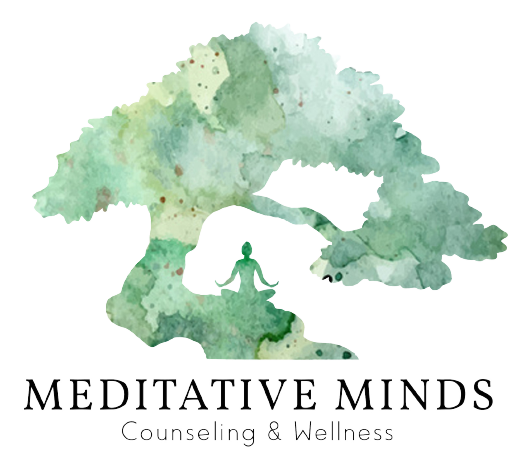Living with a chronic illness is akin to navigating through a labyrinth of physical and emotional hurdles. Each day brings forth a unique set of challenges, where managing physical symptoms often overshadows the toll it takes on mental health. In such a scenario, therapy emerges not just as a support system but as a vital tool for holistic well-being. The intersection of chronic illness and mental health is complex, yet pivotal for individuals striving for quality of life amidst health challenges. This blog delves into the significance of therapy in this context, exploring how it provides a safe space for individuals to navigate the emotional rollercoaster of chronic illness. From coping with uncertainty to addressing grief and identity shifts, therapy offers invaluable strategies to foster resilience and emotional balance. Join us on this journey as we uncover the transformative power of therapy in managing mental health amidst the trials of chronic illness.
Seeking Therapy for Mental Health in Chronic Illness

Living with a chronic illness is a multifaceted experience that often extends beyond physical symptoms, impacting an individual’s mental and emotional well-being. Despite the prevalence of mental health challenges among those with chronic illness, seeking therapy remains stigmatized in many societies. In this article, we’ll explore the importance of breaking down this stigma and encouraging individuals to seek therapy as a vital aspect of managing their mental health amidst chronic illness.
- Understanding the Stigma: Stigma surrounding mental health care is pervasive, with societal misconceptions often portraying therapy as a sign of weakness or failure. This stigma is amplified for individuals with chronic illness, who may already face societal judgment or discrimination related to their health condition. As a result, many individuals hesitate to seek therapy, fearing judgment or misunderstanding from others.
- Challenging Stereotypes: To combat stigma, it’s crucial to challenge stereotypes and misconceptions about therapy and mental health. Therapy is not a luxury reserved for those facing extreme crises; rather, it is a valuable tool for maintaining mental wellness and building resilience, particularly for individuals navigating the complexities of chronic illness. By reframing therapy as a proactive step towards self-care and empowerment, we can help dismantle harmful stereotypes.
- Empowering Individuals: Empowering individuals to prioritize their mental health begins with normalizing conversations about therapy and fostering a supportive environment where seeking help is viewed as a courageous and proactive decision. Encouraging open dialogue about mental health and sharing personal stories of therapy can help individuals feel less alone in their struggles and more confident in seeking support.
- Educating the Community: Education is key to combating stigma and promoting mental health awareness within communities. Providing accurate information about the benefits of therapy, debunking myths surrounding mental illness, and highlighting the prevalence of mental health challenges among individuals with chronic illness can help foster understanding and empathy.
- Creating Accessible Resources: In addition to addressing stigma, it’s essential to improve access to mental health resources for individuals with chronic illness. This may involve expanding mental health services in healthcare settings, offering remote therapy options for those unable to attend in-person sessions, and providing financial assistance for therapy sessions to alleviate financial barriers.
Mental Health and Chronic Illness

Living with chronic illness presents a myriad of challenges, impacting not only one’s physical health but also their mental and emotional well-being. The intersection between mental health and chronic illness is a complex and often overlooked aspect of healthcare. In this article, we will delve into the intricate relationship between these two domains, exploring the various ways in which chronic illness can affect mental health and vice versa.
The Impact of Chronic Illness on Mental Health
Chronic illness can have a profound impact on an individual’s mental health. The constant pain, discomfort, and limitations imposed by the illness can lead to feelings of frustration, sadness, and anxiety. Coping with the uncertainty of the illness, the fear of exacerbations or relapses, and the challenges of managing daily life can further exacerbate psychological distress. Moreover, the social isolation and stigma associated with certain chronic illnesses can contribute to feelings of loneliness and depression.
The Role of Mental Health in Chronic Illness Management
Conversely, mental health plays a crucial role in how individuals cope with chronic illness. A positive mental attitude and effective coping strategies can help individuals navigate the challenges of their illness more effectively. On the other hand, untreated mental health issues can worsen physical symptoms, decrease adherence to treatment plans, and hinder overall recovery.
Common Mental Health Issues Associated with Chronic Illness

Several mental health issues are commonly associated with chronic illness, including depression, anxiety, post-traumatic stress disorder (PTSD), and adjustment disorders. These conditions may arise as a direct result of the illness itself, as a response to the challenges of managing the illness, or as a side effect of certain medications.
Barriers to Mental Health Care for Individuals with Chronic Illness
Despite the significant impact of mental health on chronic illness management, access to mental health care remains a challenge for many individuals. Stigma, financial constraints, lack of awareness, and limited availability of specialized services are among the barriers that prevent individuals from seeking the support they need.
The Importance of Integrated Care
To address the complex interplay between mental health and chronic illness, a holistic approach to healthcare is essential. Integrated care models that prioritize the coordination of physical and mental health services can help ensure that individuals receive comprehensive support tailored to their unique needs.
Conclusion
Meditative Minds Counseling & Wellness in Simi Valley, CA, offers an invaluable service by providing therapy for chronic illness, facilitating the crucial management of mental health alongside physical health challenges. With a dedication to holistic wellness, their approach integrates traditional therapy methods with mindfulness and meditation practices, offering individuals a comprehensive toolkit for navigating the complexities of chronic illness. Through their commitment to compassionate care and personalized support, Meditative Minds empowers clients to cultivate resilience, enhance coping strategies, and foster a sense of well-being amidst the often overwhelming experience of chronic illness. For those seeking guidance and support in Simi Valley and beyond, Meditative Minds Counseling & Wellness stands as a beacon of hope and healing on the journey toward improved mental and physical health.


